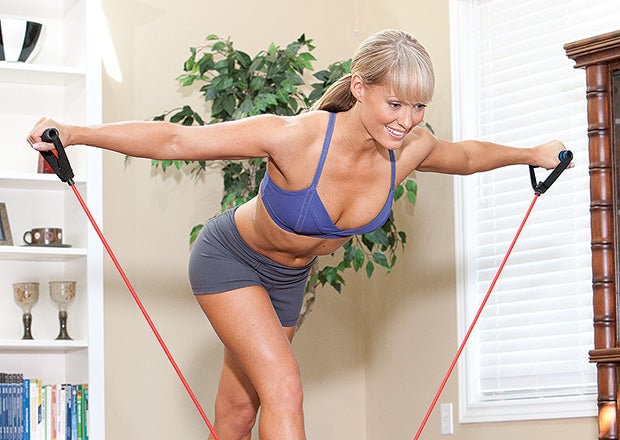Bust Your Excuses!

Your excuse: “I only eat foods that have health claims on the package – low fat, high in fiber, no sugar added, etc. Why aren’t I losing weight?”
Our expert: Yoni Freedhoff, assistant professor at the University of Ottawa, renowned obesity expert and creator of the blog “Weighty Matters.”
Freedhoff notes that governments often allow companies to boast wonderful – but vague – health claims on their products’ packages. This creates what researchers refer to as a “health halo effect” – the warm and fuzzy feeling triggered by words and images that we associate with good-for-us foods. Unfortunately, research has shown that these phrases may cause us to eat more than the recommended serving of the product – and over-consumption of anything, no matter how good for you, can lead to weight gain.
The best way to avoid package confusion altogether is to prepare your own meals – and it really only takes 20 to 40 minutes of prep per day to eat nutritiously and deliciously at home. “It doesn’t need to be gourmet,” Freedhoff notes. “There’s nothing wrong with a sandwich for dinner!”
But he does have some sound advice for busy people who rely on packaged products. “Don’t ignore the nutrition panel on the back and believe the claims on the front instead,” he cautions, noting that even when you do flip over the box, the nutritional information may still need a bit of deciphering. “Those serving sizes are arbitrary, and may be too small for an actual filling meal,” he says. Why? Consumers like to see low numbers under the calorie and fat columns, so companies often adjust serving sizes accordingly. That means it’s up to you to determine the final numbers after you’ve poured yourself a bowl of cereal or portioned out a prepackaged side dish – and if you care about your and your family’s health, that’s a step you should probably be taking anyway.
Your excuse: “I don’t have time to be at the gym for an hour and a half!”
Our expert: Brad Schoenfeld, MSc, CSCS, 2011 NSCA Personal Trainer of the Year, and author of Sculpting Her Body Perfect and The MAX Muscle Plan.
If you find yourself pressed for time, Schoenfeld has a “get fit quick” idea for you. “You don’t need to spend a lot of time in the gym to get excellent results. Even a 30-minute resistance workout two or three times a week can promote weight loss – that’s just an hour to an hour and a half per week! Just pick one multi-joint exercise for each of the major muscle groups (for example, the chest press, shoulder press, lat pulldown, squat and deadlift), and perform three sets of each in a circuit-type fashion. This entails moving from one exercise to the next with as little rest as possible (preferably less than 10 seconds between sets) and repeating the circuit two more times.”
Your excuse: “Making clean and healthy food takes too much time and costs an arm and a leg.”
Our expert: Lori Harder, Oxygen cover girl and author of the Busy Girl Healthy Life Cookbook.
According to Harder, the first step to a maintainable, healthy lifestyle is changing the way you think about your diet. “The thing that people don’t think about is the long-term consequences of our food choices,” she says. “When it comes to our health, we truly need to take a moment to stop and think about the way our decisions are impacting our lives.” While it may require an initial investment – both in time and money – to prepare and cook nutritious meals, you will reap the benefits for years to come. Your waistline, energy levels, mental state and longevity will improve if you choose to fuel your body correctly rather than quickly and cheaply.
And Harder is quick to point out that eating clean really isn’t that expensive, especially when compared to an unhealthy lifestyle. “You will no longer be living on expensive coffees, multiple trips to the vending machine, fast food restaurants or microwave lunches,” she notes.
The next time you are tempted to take the “easy way out” by settling for a prepackaged convenience meal, Harder suggests focusing on how good you will feel after putting forth that little extra effort. “I take a step back and remember that when I feel good, I do more with my time and better things with my money than when I feel bad.”